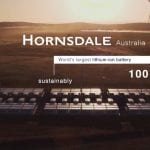Around The Web
Australia's biodiversity at breaking point – a picture essay
Land clearing, deforestation, emissions, drought and warming oceans are all worsening the attack on Australia’s threatened species
- Read more of our coverage of the issues in Our wide brown land series
Australia’s biodiversity is in trouble. The UN global assessment report painted a stark picture: the decline of the world’s natural support systems means that human society is in danger. According to the report, nature is being destroyed at a rate tens to hundreds of times higher than the average over the past 10 million years. More than a million species are at risk of extinction, natural ecosystems have declined by about 47% and the biomass of wild mammals has fallen by 82%. All of this is largely because of human activity. And the resulting impacts are likely to worsen unless we take action immediately.
As Guardian Australia has reported, Australia’s natural support systems are at breaking point. Increased land-clearing, warming oceans and a drought exacerbated by climate change are taking their toll on our biodiversity. The country is already experiencing rising oceans, marine heatwaves, longer fire seasons and extreme heat patterns. These are consistent with a changing climate.
Continue reading...Scientists edge closer to stable, cheap green hydrogen production
 Monash University team says it makes "critical" progress on the path to industrial production of green hydrogen fuel by water electrolysis.
Monash University team says it makes "critical" progress on the path to industrial production of green hydrogen fuel by water electrolysis.
The post Scientists edge closer to stable, cheap green hydrogen production appeared first on RenewEconomy.
Introducing the latest carbon neutral certified building portfolio
How the big solar boom saw major PV projects eat their own market
 How Australia's solar projects have cannibalised their own market by grouping together and causing congestion in the local grid.
How Australia's solar projects have cannibalised their own market by grouping together and causing congestion in the local grid.
The post How the big solar boom saw major PV projects eat their own market appeared first on RenewEconomy.
Commonwealth Eastern Tuna and Billfish Fishery - Agency application 2019
Commonwealth Eastern Tuna and Billfish Fishery - Agency application 2019
Tesla big battery lifts revenues 20% in first quarter, Neoen eyes more storage
 Tesla big battery at Hornsdale lifts revenues by 20 per cent in first quarter, inspiring owners Neoen to search for more storage opportunities.
Tesla big battery at Hornsdale lifts revenues by 20 per cent in first quarter, inspiring owners Neoen to search for more storage opportunities.
The post Tesla big battery lifts revenues 20% in first quarter, Neoen eyes more storage appeared first on RenewEconomy.
CP Daily: Tuesday May 14, 2019
Analysts raise WCI price forecasts on rise of long-term speculative interest
Meet the Arctic farmer hoping to make his town more sustainable
US Supreme Court denies industry appeal of Oregon LCFS
€40 EUAs this year? Don’t rule it out, warns BloombergNEF
How to transition from coal: 4 lessons for Australia from around the world
Thirty sharks captured on barrier reef and exported to France all died in captivity
Scalloped hammerheads were at the Nausicaá aquarium in the French port of Boulogne, near Calais
Thirty hammerhead sharks captured on the Great Barrier Reef and exported to a French aquarium over an eight-year period have all died in captivity and the federal government says it knows nothing about it.
The deaths, which are the subject of legal action by Sea Shepherd France, could put a spotlight on the trade of threatened sharks caught in Australian waters because of a federal law that allows them to continue to be commercially fished.
Continue reading...EU Market: EUAs race towards €26 on supportive auction, energy gains
ANALYSIS: WCI auction expected to clear under secondary market despite bull run
Cooperation and force in aid of the environment | Letters
Jonathan Freedland (The secret to stopping Brexit: keep it simple, 11 May) refers to the urgency of climate change and points out, correctly, that this situation “cries out for cooperation with our neighbours”. But his logic is adrift when he links this with his wish for continued British membership of the EU.
Firstly, such cooperation could happen via one of the other Europe-wide bodies of which the UK is a member, or via an intergovernmental group specific to that problem; there is no need for it to happen through the EU specifically or any such top-down supranational body.
Continue reading...A Green New Deal for Britain – do we need a Kennedy moment to bring it about? | Letters
Your editorial (13 May) correctly states that Britain needs a Green New Deal now, and indeed in your letters page last autumn (10 September) our report detailing what form such a “jobs in every constituency” Green New Deal could take, and how to pay for it, was supported by a cross-party group of MPs, NGO leaders and academics. Since then the idea has gained international traction thanks to the likes of Alexandria Ocasio-Cortez and the support of grassroots movements. The US approach also includes the need to improve economic security for the majority, which has widened its support base. Finally, the scientific data underscoring the need to act in the next 10 years to tackle climate change and biodiversity loss has resulted in unprecedented activist pressure on politicians to respond.
As a result, all opposition parties are calling for the declaration of a climate emergency, but the government’s actual policies – from fracking to the rollback of support for renewables and energy efficiency – are making things worse. Yet all is not lost. At the end of last year more than 60 Tory MPs signed an all-party letter calling on the prime minister to back a net zero-emissions target ahead of 2050. Clearly the disconnect here is the lack of necessary political will. MPs should take inspiration from President Kennedy’s call in 1961 to put a man on the moon within a decade, but this time the priority must be to save the planet, rather than leave it.
Colin Hines
Convener, UK Green New Deal Group



